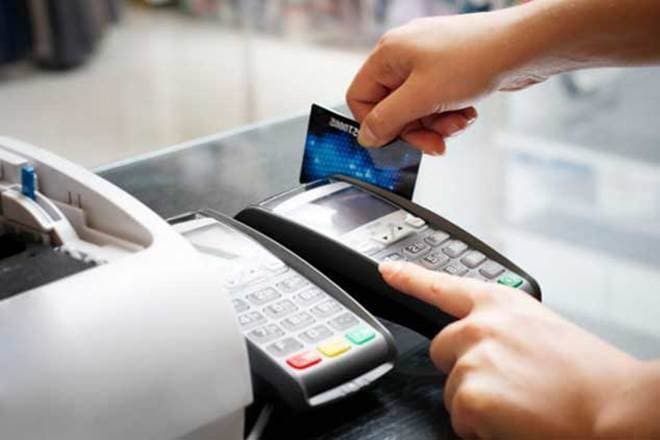By AP HOTA
1. I am not a regular user of digital payments. I use my debit cards only for cash withdrawal from ATM. How can I migrate to mobile payment during lockdown?
If you have a smart phone and your phone number is already linked with the bank account, you can easily migrate to mobile banking. Lockdown or no lockdown, adopting digital payments is the way to go. Steps involved are simple—download, activate and start using—in flat five minutes, if not two minutes as is claimed by many. For downloading the mobile banking package of your bank, go to Play Store/App Store in your phone. As you open the app, it would lead you to activate your mobile banking and ask a few questions to validate whether you are the right customer. It may also ask you to create a user ID and password. You will find various functionalities in the mobile banking app—including payments through IMPS and NEFT. Many banks have integrated UPI, bill payments and e-commerce links in the bank app itself. Thus, you would have all three digital payment options. They are available 24×7. Make small transfers of Rs 5-10 to your family members or friends using all three options, and choose the one that suits you best. Personally, I would suggest using the UPI option because of its simplicity and variety of use cases and online grievance handling procedure. You can meet most of your payment transaction needs via UPI—like money transfers, payment of utility bills, school/college fees, ordering home delivery of food items or buying from e-commerce market places, and even tax payments.
2. Can I not use third-party UPI/a digital payment app like BHIM ?
Yes, you can. But, with mobile banking app of your bank, you can manage various types of banking transactions including payments. SBI has positioned its YONO application as “You Only Need One” app, and so is the case with many leading banks. My recommendation is that you use your own bank’s mobile app, and supplement with one of the third-party packages like BHIM, GPay, PhonePe or PayTM. BHIM is managed by NPCI—the operator for UPI system itself. If you are a frequent user of Amazon, it has Amazon Pay—their UPI offering. Almost all mobile banking packages and all UPI packages mandatorily have QR code features. At small kirana stores, you can open the UPI app and pay by the QR code.
3. I have a credit card. But, I use the same only in physical stores at the POS device and to fund my wallet. Is it safe to use this credit card on the internet?
Absolutely safe. Make sure that your mobile phone is linked with the credit card so that you get the mobile alert. When you make payments on the internet, at the checkout stage, opt for credit card option and provide the details required. You can save the details in the e-commerce app for future purchases. Most secure aspect of a credit card is CVV. It is not saved anywhere except the card-issuing bank/non-bank.
4. My usage of digital payment is limited to use of a wallet, and I fund it from my credit card. Should I surrender my wallet and completely move to mobile banking app or third party UPI?
You can continue to have a wallet and at the same time have the mobile banking app of your bank or a third party UPI app. If you bank with multiple banks, you can link all your accounts in a single UPI app and toggle between the banks with same UPI ID.
5. I used to pay all my bills and other institutional payments by cheques. I used to write the reason for issuing it in the record slip. With restricted movement, I am forced to adopt digital means. I am worried about how to keep a record.
Not to worry. Digital equivalent is available in mobile banking apps. Full transaction history can be seen at any moment. Anyway, usage of cheque as a payment method is declining very fast with increased adoption of digital payments. Credit card payments can also be done digitally, if auto debit to your bank account has not been chosen.
6. I am worried about cyber fraud. How can I be sure that my accounts are safe?
Follow the tips regularly being sent by your bank through broadcast messages. Key recommendation is not to share your user Id, password, UPI/ATM PIN, OTP and account details with any one. Keep your mobile password protected so that no one misuses it. Look for SMS alerts for every transaction made. If you follow the bank prescribed precautions, you would not be liable even if there is a cyber-attack on your account. RBI has come out with zero liability circular to protect the customers, provided complaint is lodged with the bank within 72 hours of fraudulent transaction.
7. Should I use debit card or credit card for my purchases? Can I link my credit card for UPI transactions?
If you are a prudent user of credit card and make 100% payment in auto debit mode at the end of the billing cycle, I would recommend credit card. But, if liquidity is not an issue, you can opt for debit card. The payment gateways in India are reasonably secure, and there is no distinction between credit and debit card so far as data security of transactions are concerned. Backend fraud management practices at banks and credit card companies are equally good. But, for UPI linkage, currently RBI allows only bank accounts possibly for the reason that credit card data processing is not 100% in-house in banks. It is only a matter of time.
The author is Former CGM RBI, & former MD&CEO, NPCI. Views are personal


